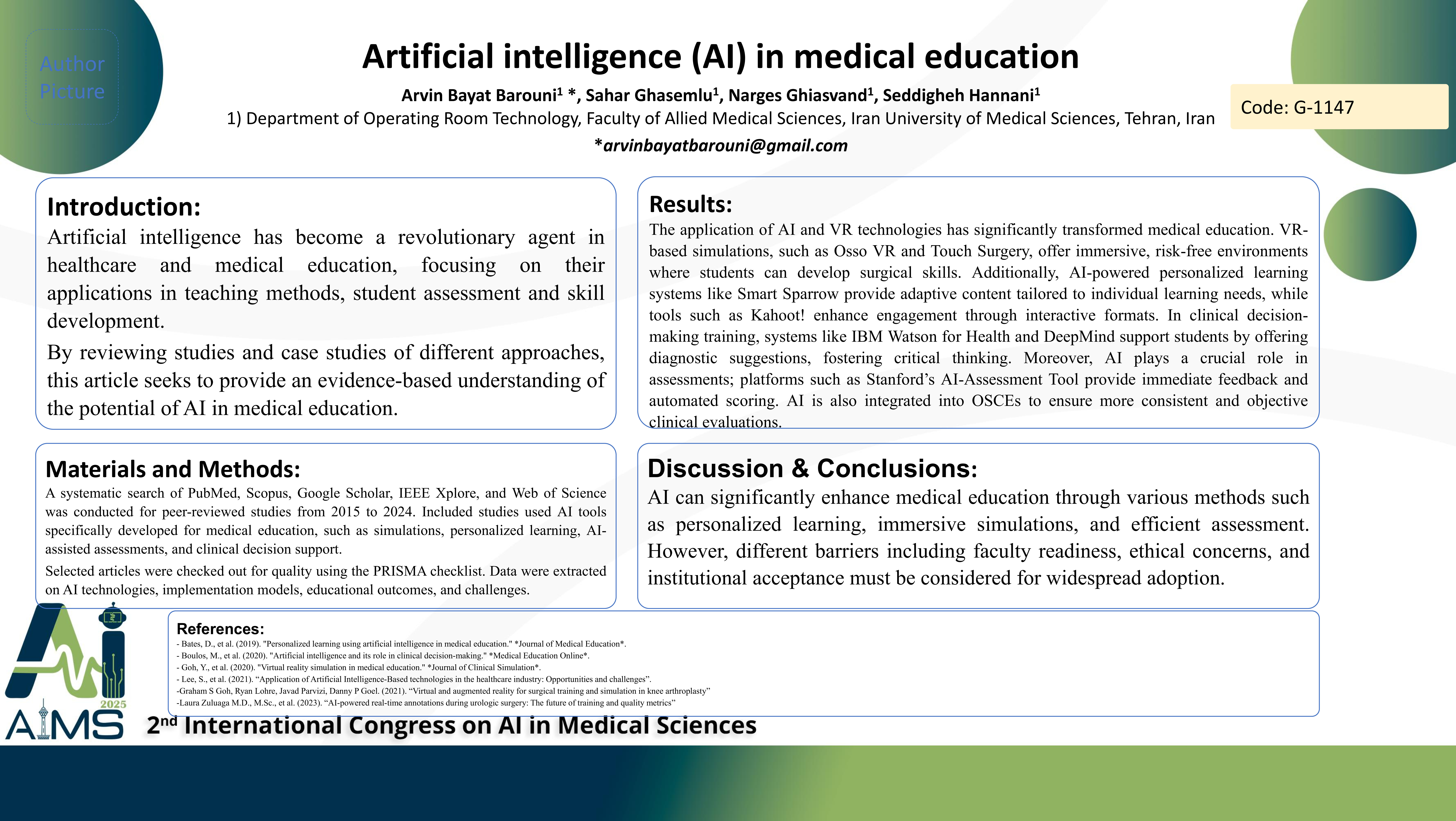هوش مصنوعی در آموزش پزشکی
کد: G-1147
نویسندگان: Arvin Bayat Barouni * ℗, Sahar Ghasemlu, Narges Ghiasvand, Seddigheh Hannani
زمان بندی: زمان بندی نشده!
برچسب: دستیار مجازی هوشمند
دانلود: دانلود پوستر
خلاصه مقاله:
خلاصه مقاله
Artificial intelligence has become a revolutionary agent in healthcare and medical education, focusing on their applications in teaching methods, student assessment and skill development. By reviewing studies and case studies of different approaches, this article seeks to provide an evidence-based understanding of the potential of AI in medical education. Background and aims: The application of artificial intelligence (AI) in medical education spans instructional strategies and clinical learning. Technologies such as machine learning (ML), natural language processing (NLP), and virtual reality (VR) are beginning to change how students learn, practice, and improve. This paper aims to assess the current use of AI in medical education, describe the technologies involved, their effects on student outcomes, and the challenges. Method: A systematic search of PubMed, Scopus, Google Scholar, IEEE Xplore, and Web of Science was conducted for peer-reviewed studies from 2015 to 2024. Included studies used AI tools specifically developed for medical education, such as simulations, personalized learning, AI-assisted assessments, and clinical decision support. Selected articles were checked out for quality using the PRISMA checklist. Data were extracted on AI technologies, implementation models, educational outcomes, and challenges. Results: The application of AI and VR technologies has significantly transformed medical education. VR-based simulations, such as Osso VR and Touch Surgery, offer immersive, risk-free environments where students can develop surgical skills. Additionally, AI-powered personalized learning systems like Smart Sparrow provide adaptive content tailored to individual learning needs, while tools such as Kahoot! enhance engagement through interactive formats. In clinical decision-making training, systems like IBM Watson for Health and DeepMind support students by offering diagnostic suggestions, fostering critical thinking. Moreover, AI plays a crucial role in assessments; platforms such as Stanford’s AI-Assessment Tool provide immediate feedback and automated scoring. AI is also integrated into OSCEs to ensure more consistent and objective clinical evaluations. Conclusion: AI can significantly enhance medical education through various methods such as personalized learning, immersive simulations, and efficient assessment. However, different barriers including faculty readiness, ethical concerns, and institutional acceptance must be considered for widespread adoption.
کلمات کلیدی
ArtificialIntelligence(AI), MedicalEducation, MachineLearning(ML), VirtualSimulation, PersonalizedLearning, ClinicalDecisionMaking,
